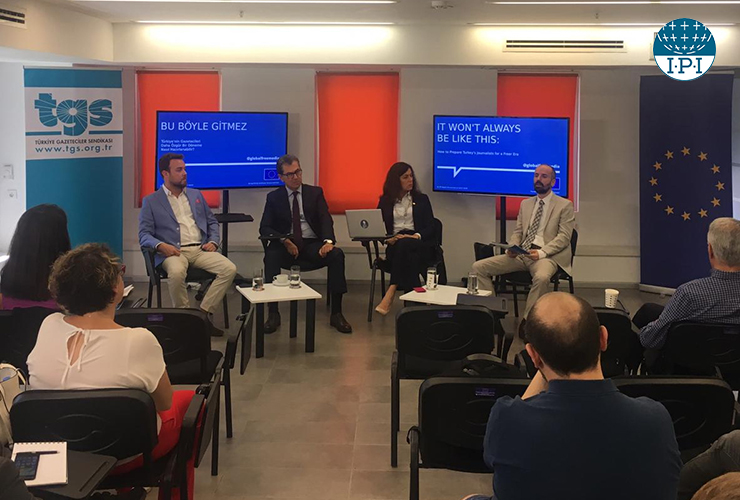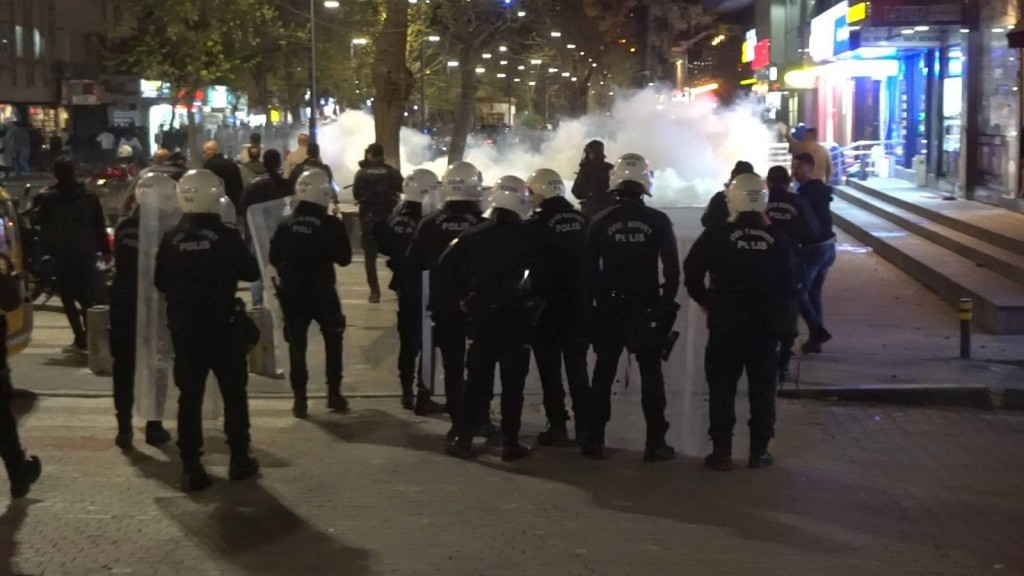The International Press Institute (IPI) today launched a study on the future of quality journalism in Turkey at the Journalists’ Union of Turkey’s (TGS) Press Academy in Istanbul.
The study, entitled “‘It Won’t Always Be Like This’: How to Prepare Turkey’s Journalists for a Freer Era”, is based on more than 100 interviews with journalism students, local journalists, publishers and academics conducted by IPI Turkish National Committee Vice Chair Emre Kızılkaya from February to April 2019.
After determining the problems faced by reporters and media outlets across Turkey, the study, which aims to strengthen quality journalism in Turkey as part of IPI’s long-term work in the country, also hosted workshops on possible solutions inspired by design thinking methodology.
The 20-page report proposes a number of innovative solutions, including setting up an open curriculum for journalism education in Turkish, Kurdish and Arabic; opening community-driven “Creative Cafes” and “Journalism Experience Centers”; mapping trusted news organizations and reporters; providing incubator and accelerator initiatives; and enabling sponsored international internship programmes for students. The recommendations are geared toward a range of stakeholders, including donors.
IPI is a global network of editors, journalists and media executives dedicated to furthering and safeguarding press freedom, promoting the free flow of news and information, and improving the practices of journalism. Founded in 1950 at Columbia University, IPI today has members in nearly 100 countries.
With a history of engagement going back more than 60 years, it is the most deeply rooted international journalism organization in Turkey. Prominent Turkish journalists that have served on its Executive Board include Abdi Ipekci and Ahmet Emin Yalman and, currently, Kadri Gürsel.
Read the executive summary below.
Executive Summary:
Turkey presents one of the worst environments for journalists in the world. Political and economic pressures torment the country’s media, pulling down the quality of journalism and thwarting its remarkable potential to flourish.
To explain various aspects of today’s problem and to propose solutions to all stakeholders, including donors, the International Press Institute (IPI) has published a new field study focusing on the situation of Turkey’s local journalists and journalism students. The study, which was carried out by IPI’s Turkey National Committee, aims to help provide a foundation for the future of quality journalism in the country.
Between February and April 2019, the study:
- interviewed 67 journalism students from all seven geographical regions of Turkey;
- interviewed local journalists and publishers from all seven regions; and
- facilitated three journalism workshops, inspired by design-thinking methodology, in Istanbul to come up with innovative solutions.
Journalism students expressed a high degree of resilience despite the current challenges, which include the ongoing arrests of critical voices and massive youth unemployment in Turkey. However, they complained of an “outdated” university education model for journalism, as well as a lack of opportunities for on-the-job training. Censorship, antiquated journalism curricula and a lack of skills-based internships were three of the most frequently cited problems.
For local journalists and publishers, the devaluation of the Turkish lira as well as ever-shrinking advertising revenue, including ad revenue from public coffers, have had a severe economic impact, with many additional media outlets slated to shut down before the end of 2019. Coupled with local clientelism and the ongoing downsizing of national outlets’ regional offices, this process has led to growing “news deserts” in the Turkish countryside, as well as in the country’s Kurdish-majority southeastern provinces.
Several cases show that citizen journalism is surviving, even on the local level. But it is not enough to make sure that Turkey’s media ecosystem is ready to provide quality journalism when a freer era arrives. As such, based on dozens of interviews and workshops, the study makes a number of recommendations. These include:
- Setting up an open curriculum and a massive open online course (MOOC) on journalism in Turkish, Kurdish and Arabic;
- Opening community-driven “Creative Cafes” and “Journalism Experience Centers” to promote New Media literacy in local communities across Turkey;
- Mapping trusted news organizations and local reporters in Turkey as a first step to establishing “impromptu newsrooms” around the country;
- Providing incubator and accelerator programs to support early-stage journalism initiatives in Turkey; and
- Enabling a sponsored international internship programme and a new journalism award to train and motivate Turkey’s next-generation journalists.



